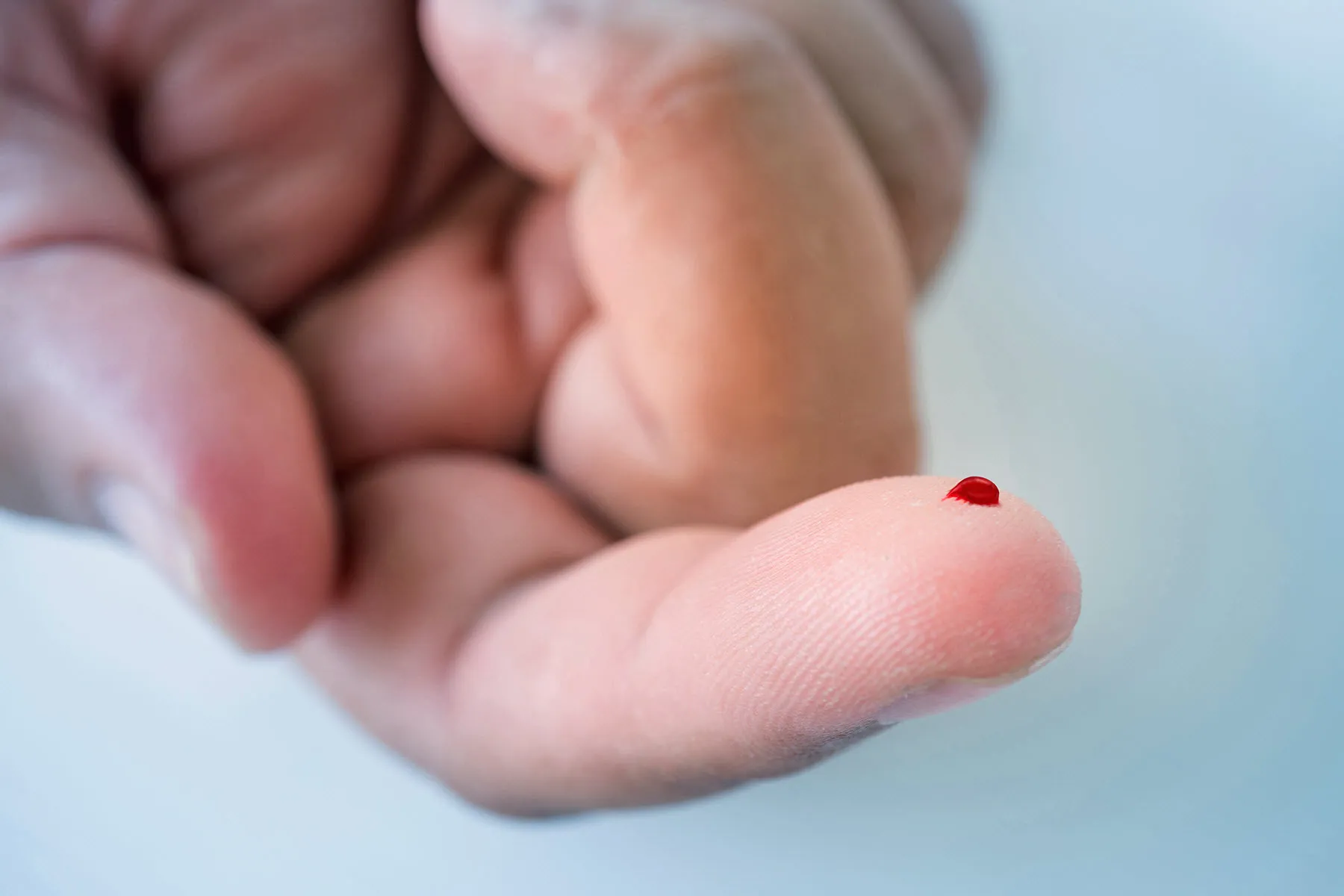
If you’ve been paying attention to COVID headlines lately, you may have heard that blood type may play a role in people’s susceptibility to the virus and the severity of symptoms it might produce. A way to better understand our risk – that’s great! Except, what if you don’t know your blood type?
If you don’t already know your blood type, finding record of it can be difficult – blood type isn’t on your birth certificate and is not typically listed in records from routine lab work. So, you may need to do a blood type test – and that’s actually quite simple. I did mine during science lab in junior high: I pricked my finger with a lancet, dabbed drops of blood onto squares on a card printed with a grid, and, like magic, my blood type was revealed.
You can do the same thing today. Home blood typing kits give you an answer in minutes. These tests cost less than $20, and they’re accurate.
You also can find out your type by donating blood – which is in short supply right now. Or, if you’re scheduled for routine lab work, you can ask your doctor to include blood typing in the orders so you can find out if you’re A, B, AB or O.
Knowing your blood type is a good thing. It can help you plan a healthy pregnancy, for example, or donate blood as often as possible if you have a rare type like AB-, because hospitals never have enough units of rare blood types.
And when it comes to COVID, it might give you a little more insight about your risk.
Researchers believe that people with type A blood contract COVID-19 more easily and that their symptoms appear to be worse than those of people with other blood types. Research also suggests that people who have type O blood seem to ward off the virus better and experience less-severe symptoms. As for people with type B or AB? Their susceptibility and symptoms appear to fall somewhere in between.
If you have type A blood and this news worries you, I can understand that. But there’s no need to panic – it doesn’t mean that you will definitely contract the virus. It simply means that you might want to take even more precautions to avoid picking up the virus. At the end of the day, there’s nothing you can do about your blood type – it’s not a risk factor you can control in any way. But there are other risk factors that you can control, so focus your energy there instead. For example, obesity seems to be a major risk factor, so focus your attention on reaching or maintaining a healthy weight – change your diet and make sure you’re getting regular exercise (these habits will help boost your immune system, too!).
And for those of you with type O blood, the idea you may be less susceptible to COVID-19 does not mean you are guaranteed to be safe from getting the virus – or from passing it to others – it’s not an excuse to skip taking precautions against the virus. Everyone, regardless of risk level, should wear a face mask in public and engage in frequent, vigorous handwashing – at a minimum. Doing this helps avoid spreading the virus to more vulnerable people. Like people with type A blood.
"type" - Google News
July 08, 2020 at 10:21PM
https://ift.tt/323Xdh7
'How Can You Find Out Your Blood Type?' - WebMD
"type" - Google News
https://ift.tt/2WhN8Zg
https://ift.tt/2YrjQdq
Bagikan Berita Ini














0 Response to "'How Can You Find Out Your Blood Type?' - WebMD"
Post a Comment